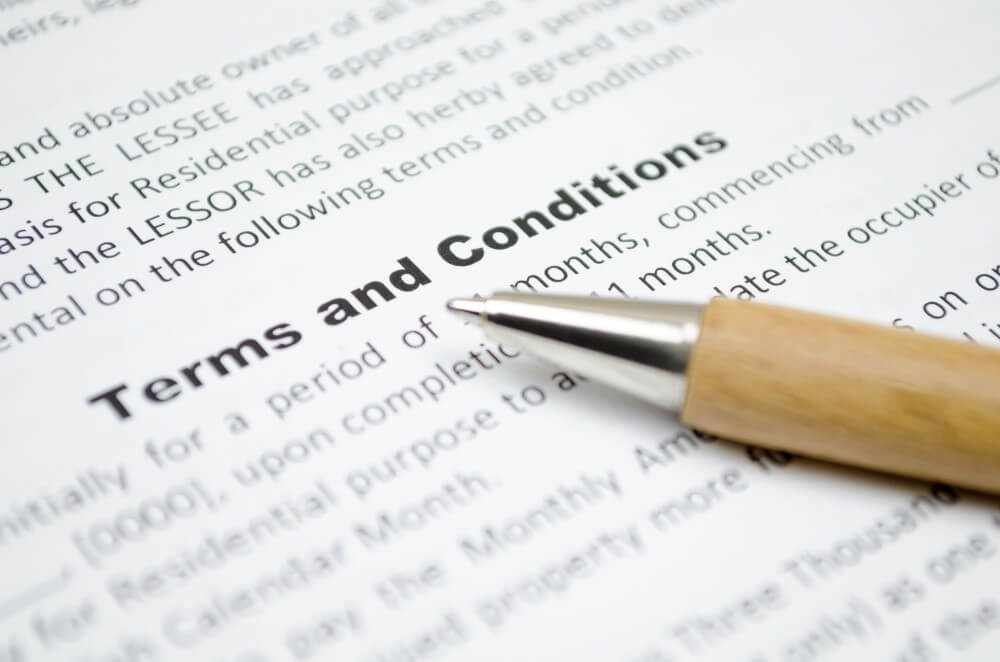How Do I Get Terms and Conditions for my Business?
Running a successful business relies on clearly defining the exchanges, relationships, and interactions between the business and its customers. To standardise and protect these relationships, it’s vital that companies have clearly drafted terms and conditions.
Terms and conditions refer to the terms of the legal contract between your business and your customers concerning the supply of goods and services. You may also hear terms and conditions referred to as T&Cs or terms of sale.
T&Cs are used to record the conditions that customers are agreeing to when doing business with you. They are essential for setting expectations and protecting your business by clearly defining customers’ rights and your responsibilities, as well as restricting your liability where appropriate.
What should terms and conditions cover?
T&Cs should make it clear what product or service you are selling, including product details, the price and any relevant provisions for future changes (e.g. the conditions under which you might need to adjust the purchase price).
Standard T&Cs will also cover:
- Any appropriate delivery arrangements, for example who will cover the delivery costs and where the goods will be delivered.
- Payment terms, these conditions should cover when the customer will make payment and how much will be paid
- Warranties or guarantees that maybe offered as part of the agreement
- What would happen if the goods sold are not up the required level of quality
- The length of the agreement and what notice must be given to end the contract (if applicable)
- The consequences for each party for failing to adhere to their contractual responsibilities and obligations
- The specific legislation that governs the agreement
Why does a business need terms and conditions?
T&Cs help businesses to determine how their content, products or services can be used as part of a legally binding contract. These terms support companies to protect themselves, ensuring that consumers do not misuse products or fail to uphold their end of the agreement, (for example the payment terms).
T&Cs can also help companies to ensure copyright protection for their products. They ensure that customers know what they are paying for and anything that’s expected of them as part of the business relationship and contract.
Unless you have clearly drafted terms and conditions for your business, you may put yourself at risk of expensive and costly legal disputes in the future. With an clear set of terms and conditions, you’ll be able to resolve any issues promptly without risking damages to your business.
How do you get T&Cs for a business?
If you’re looking to get terms and conditions for your business, you’ll need the support of a commercial solicitor. A solicitor can assist you to establish and assess the needs of your business and draft the perfect set of terms and conditions to reflect your requirements.
It is not advisable that you attempt to draft your own T&Cs without the support of a commercial lawyer. If you’ve already created and proceeded to use your own T&Cs, it’s crucial that you have these reviewed by a solicitor.
It could be that you had your terms and conditions drafted by a solicitor a long while ago. In this case, it’s also worth having your terms and conditions checked reviewed. Market changes or adjustments to your company could mean that your business would benefit from updated terms of sale.
How to incorporate your business terms and conditions into a contract
While many companies have their own T&Cs, these are only binding for involved parties if the terms are first incorporated into the contract. To ensure that your T&Cs are incorporated into a contract, you’ll need to provide the other party with notice.
You can provide notice by giving the party a copy of your conditions, or by including the terms and conditions as part of your invoices.
Unless you have adequately given notice, the party in question could claim that they were not fully aware of the terms and conditions. To avoid problems of this nature, it’s best to consult a commercial lawyer.
Here to Help
To discuss terms and conditions for your business, get in touch with our expert commercial lawyers today. At Longmores Solicitors, we have ample experience supporting our clients to draft the appropriate terms and conditions to reflect their business needs.
To discuss how we can help with terms and conditions for your business, please get in touch and we will be happy to advise
Longmores’ Company Commercial team are highly are highly experienced. To discuss how we can help, please get in touch with Michael Budd, Partner and Head of Company Commercial.
Our team of solicitors will take the time to understand your needs and circumstances. We can then provide tailored advice to protect your business from potential pitfalls, ensuring you are fully compliant with all relevant legislation.
To discuss how we can help with company commercial legal documents, please get in touch, and we will be happy to advise.
Please note the contents of this article are given for information only and must not be relied upon. Legal advice should always be sought in relation to specific circumstances.

